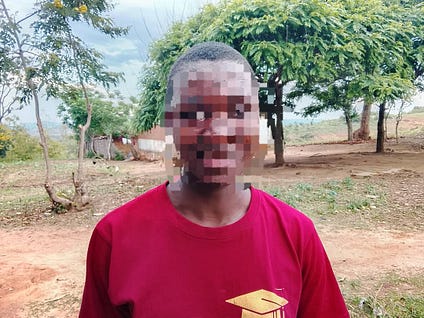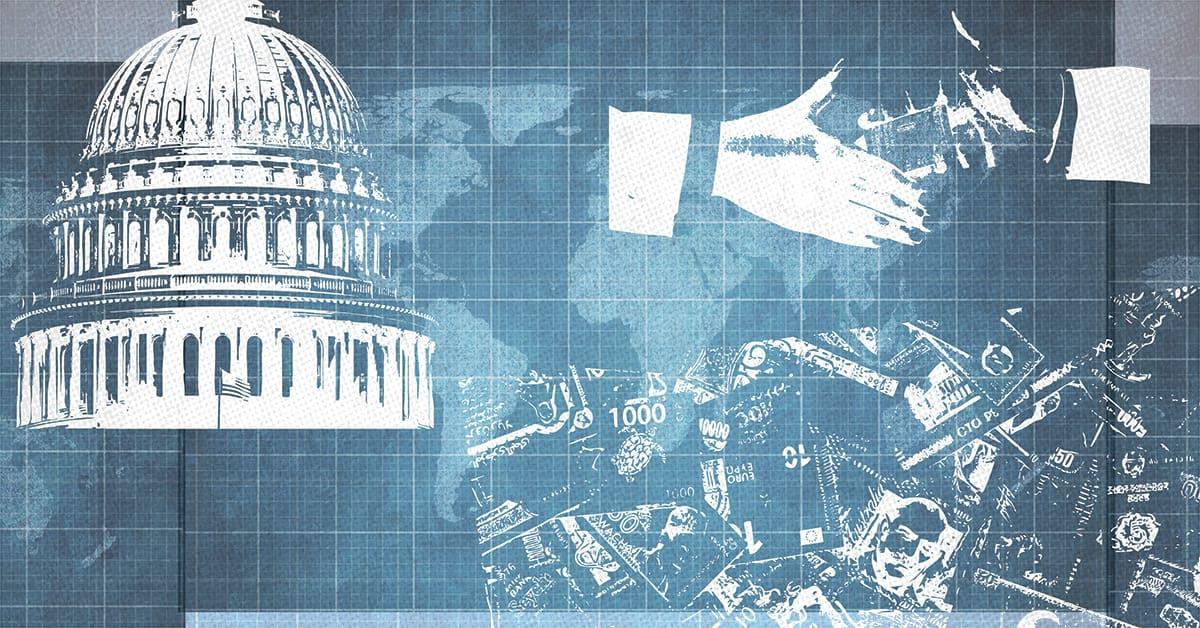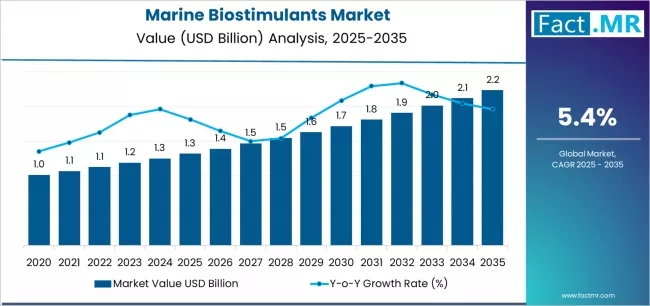Department of Criminal Justice Welcomes Dr. Lin Liu – Temple University

Appointment of Dr. Lin Liu and Alignment with Sustainable Development Goals
Faculty Appointment and Academic Profile
The Department of Criminal Justice has appointed Dr. Lin Liu as an Assistant Professor. Dr. Liu’s academic and professional background includes:
- Doctorate: PhD in Criminology, University of Delaware.
- Previous Position: Assistant Professor, University of Florida.
- Publication Record: Over 50 peer-reviewed articles in journals such as Justice Quarterly, Crime & Delinquency, and the Journal of Criminal Justice.
Contribution to SDG 16: Peace, Justice, and Strong Institutions
Dr. Liu’s research portfolio directly supports the advancement of SDG 16 by focusing on the effectiveness and equity of justice systems. Her work contributes to building accountable and inclusive institutions at all levels.
- Corrections and Reentry: Her research in this area examines institutional practices and offender rehabilitation, aligning with Target 16.3 to promote the rule of law and ensure equal access to justice.
- Juvenile Justice: This focus area addresses the need for justice systems that are responsive to the specific needs of children, contributing to Target 16.2 to end abuse, exploitation, and all forms of violence against children.
Addressing SDG 3 (Good Health and Well-being) and SDG 10 (Reduced Inequalities)
Dr. Liu’s work on vulnerable populations intersects with key health and inequality targets. Her National Institutes of Health (NIH) funded research on suicide risk among vulnerable youth is a significant contribution to these goals.
- SDG 3.4: By investigating mental health crises within the justice system, her research aims to promote mental health and well-being for a high-risk demographic.
- SDG 10.2 & 10.3: The focus on “vulnerable youth” inherently addresses systemic inequalities, seeking to ensure equal opportunity and reduce inequalities of outcome for marginalized groups interacting with the criminal justice system.
Fostering SDG 9: Industry, Innovation, and Infrastructure
Dr. Liu’s methodological approach enhances scientific research and technological capabilities within the social sciences, supporting SDG Target 9.5.
- Innovative Methods: Her application of machine learning and artificial intelligence represents an advancement in criminological research, enabling more sophisticated analysis of complex social problems related to justice and public safety.
SDGs Addressed or Connected to the Issues
-
SDG 3: Good Health and Well-being
- The article explicitly mentions Dr. Liu’s research on the “suicide risk of vulnerable youth,” which has been funded by the National Institutes of Health. This work directly addresses mental health, a critical component of overall health and well-being.
-
SDG 16: Peace, Justice and Strong Institutions
- Dr. Liu’s primary research areas are listed as “reentry, corrections, juvenile justice.” These topics are central to SDG 16, which aims to promote peaceful and inclusive societies, provide access to justice for all, and build effective, accountable, and inclusive institutions at all levels. Her work contributes to understanding and improving the justice system.
-
SDG 10: Reduced Inequalities
- The focus on “vulnerable youth” and topics like “reentry” and “juvenile justice” inherently connects to reducing inequalities. These fields often examine how justice systems disproportionately affect marginalized and vulnerable populations, and research in this area seeks to understand and mitigate these disparities, promoting social inclusion.
-
SDG 4: Quality Education
- Dr. Liu’s appointment as an Assistant Professor and her extensive publication record of over 50 peer-reviewed articles contribute to higher education and scientific research. This advances knowledge in social sciences and educates the next generation of professionals in the criminal justice field, aligning with the goal of ensuring inclusive and equitable quality education and promoting lifelong learning opportunities.
Specific Targets Identified
-
Target 3.4: Reduce premature mortality from non-communicable diseases and promote mental health
- The article’s statement that Dr. Liu’s research examines the “suicide risk of vulnerable youth” directly aligns with this target. Suicide is a form of premature mortality, and her work contributes to the prevention and promotion of mental health and well-being for a high-risk group.
-
Target 16.2: End abuse, exploitation, trafficking and all forms of violence against and torture of children
- Dr. Liu’s research in “juvenile justice” and on “vulnerable youth” is relevant to this target. This field of study is concerned with the protection of children and youth within the justice system and society, aiming to prevent violence and abuse.
-
Target 16.3: Promote the rule of law and ensure equal access to justice
- The research areas of “reentry” and “corrections” are directly related to the functioning of the justice system. This research helps inform policies and practices that can improve the fairness and effectiveness of these institutions, thereby promoting the rule of law and working towards equal access to justice for those who are or have been incarcerated.
-
Target 10.2: Empower and promote the social, economic and political inclusion of all
- Research on “reentry” specifically addresses the challenges individuals face when reintegrating into society after incarceration. This work is crucial for developing strategies that promote the social and economic inclusion of a highly marginalized population, which is a core objective of this target.
Indicators Mentioned or Implied
-
Indicator 3.4.2: Suicide mortality rate
- While the article does not state the indicator number, it directly implies it. Research that examines “suicide risk” is fundamentally linked to the goal of reducing the “suicide mortality rate.” The success of interventions informed by such research would be measured by a decrease in this specific indicator among vulnerable youth.
-
Implied Indicator: Recidivism Rates
- Dr. Liu’s research on “reentry” and “corrections” implies the use of indicators like recidivism rates (the rate at which formerly incarcerated individuals reoffend). This is a key metric used to measure the effectiveness of correctional and reentry programs in promoting successful reintegration and public safety, which is central to building effective justice institutions (SDG 16).
-
Implied Indicator: Rates of juvenile detention and violence against youth
- The focus on “juvenile justice” implies the measurement of indicators such as the proportion of youth in detention or the incidence of violence experienced by youth within the justice system. These metrics are essential for tracking progress towards protecting children and ensuring justice systems are fair and effective for young people (Target 16.2).
Table of SDGs, Targets, and Indicators
| SDGs | Targets | Indicators |
|---|---|---|
| SDG 3: Good Health and Well-being | Target 3.4: Reduce premature mortality from non-communicable diseases and promote mental health | Indicator 3.4.2: Suicide mortality rate (Implied by research on “suicide risk”) |
| SDG 16: Peace, Justice and Strong Institutions | Target 16.2: End abuse, exploitation… and all forms of violence against… children | Implied: Rates of juvenile detention or violence against youth |
| SDG 16: Peace, Justice and Strong Institutions | Target 16.3: Promote the rule of law and ensure equal access to justice | Implied: Recidivism rates (Related to research on “reentry” and “corrections”) |
| SDG 10: Reduced Inequalities | Target 10.2: Empower and promote the social, economic and political inclusion of all | Implied: Metrics on the successful reintegration of formerly incarcerated individuals |
Source: news.temple.edu

What is Your Reaction?
 Like
0
Like
0
 Dislike
0
Dislike
0
 Love
0
Love
0
 Funny
0
Funny
0
 Angry
0
Angry
0
 Sad
0
Sad
0
 Wow
0
Wow
0

















































.jpg.webp?itok=0ZsAnae9#)





:focal(1500,1000)/https://media.globalcitizen.org/a6/9a/a69a4720-d8a1-4715-b596-18738d03c05c/rotary_polio_hero_image.jpg?#)


















